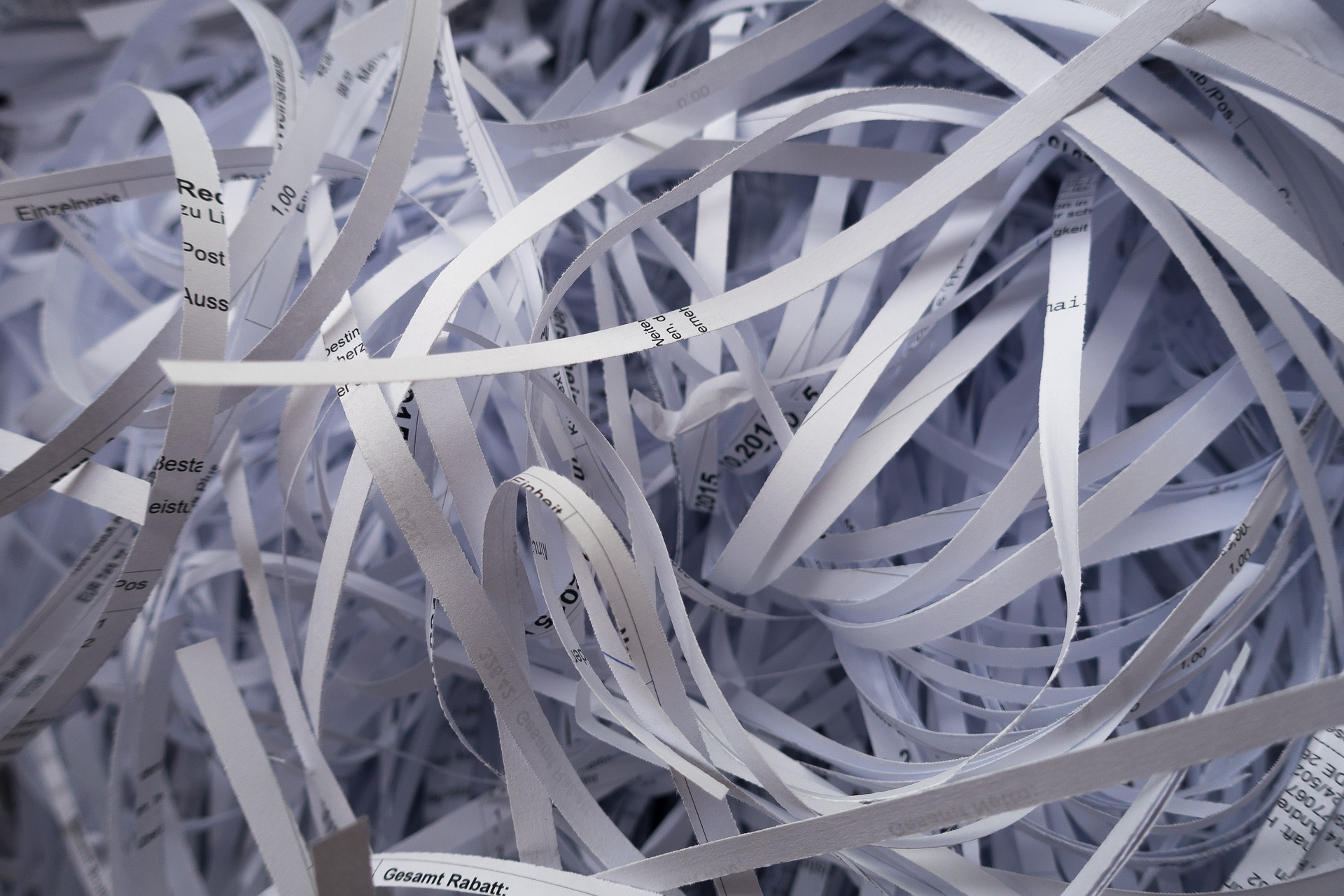
13 Feb How long should I keep these records?
Photo: pixabay.comQ. How long is it necessary to keep Medicare “Explanation of Benefits” statements for relatives who died over 10 years ago, and how long to hold onto monthly bank statements for accounts that are now closed and/or for banks that no longer exist?
— Decluttering
A. It can be tough to figure out how long to hold onto various types of records.
Let’s go through them.
Some documents, such as wills, titles, birth certificates or life insurance policies should be kept indefinitely, said Gene McGovern of McGovern Financial Advisors in Westfield.
“Most of the time, though, the documents in question involve either tax matters or simply proving that something has occurred, such as a payment on a credit card bill,” he said. “Whether and how long to retain those records can vary quite a bit.”
McGovern said documents that support income and expense items on your income tax return — such as W-2 or 1099 forms, checks and receipts — should be kept for a minimum of three years from the due date of the return (or the date you filed the return, if later).
That’s because the IRS generally has a three-year statute of limitations period in which to assess the taxes due.
Keep in mind the IRS assessment period is six years for returns that omit more than 25 percent of gross income, and that there’s no limit on the assessment period in cases of fraud or failure to file a return, he said.
For that reason, you should generally keep tax-related records for at least seven years.
McGovern said you should keep copies of all prior tax returns indefinitely, whether on paper or digitally.
There are other records to consider, such as those that show how much you paid to acquire or improve property. Those should be kept until the property is sold or otherwise disposed of, such as through inheritance, McGovern said.
“For example, documentation for the purchase cost of your home and any later capital improvements should be kept until the home is sold — and for seven years after filing the return that reports the sale — to support the amount of profit or loss claimed,” he said.
For day-to-day records such as credit card or utility bills, McGovern said there’s little reason to keep such documents — assuming they’re not needed for tax purposes — once the next bill is received that shows payment of the previous one. That’s especially true because, in many cases, prior months’ bills or statements are available online if needed, he said.
Now to the documents you asked about.
McGovern said it’s unlikely that any tax or payment/claims issues remain for Medicare Explanation of Benefits documents for relatives who died more than 10 years ago.
The same is likely true for monthly bank statements from old, closed accounts or banks, unless there are checks among them that might be needed to prove the purchase price of property, he said. If that’s the case, you should retain the checks until the property is sold.
“Note that these old documents may contain Social Security numbers or other sensitive information,” McGovern said. “For that reason, it’s a good idea to shred the records when you’ve made the decision to dispose of them.”
Email your questions to Ask@NJMoneyHelp.com.
This post was first published in February 2018.
NJMoneyHelp.com presents certain general financial planning principles and advice, but should never be viewed as a substitute for obtaining advice from a personal professional advisor who understands your unique individual circumstances.
